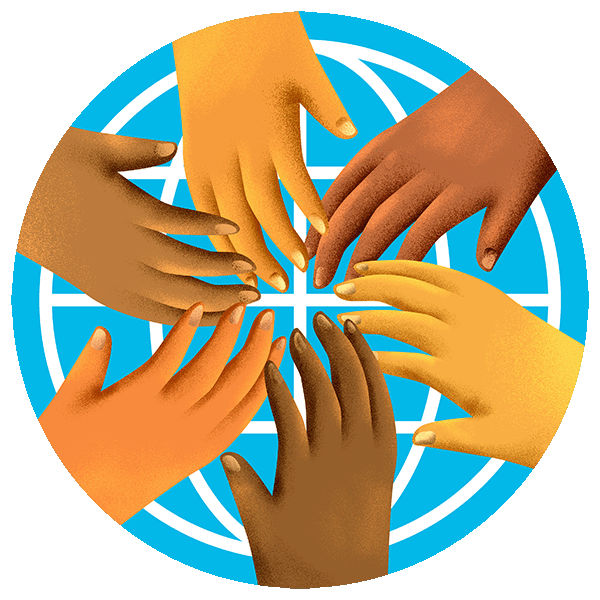
UNPFII 2024 - The System Is Corrupt - Waniya Locke
The world's largest Indigenous gathering, the UN Permanent Forum on Indigenous Issues, kicked off its 23rd session at UN Headquarters in New York. Indigenous delegates will champion self-determination and sovereignty for their communities, with a special focus on amplifying the voices of Indigenous youth. Cultural Survival is also attending the gatherings interviewing indigenous delegates about their self-determined priorities and their readiness to engage in high-level UN discussions.
Cultural Survival attended the UNPFII and spoke to some of the delegates who attended.
UNPFII 2024 - A Platform To Raise My Voice - Sonner Geriya
The UNPFII raises awareness and promotes the integration and coordination of activities related to Indigenous issues within the UN system.
Cultural Survival attended the UNPFII and spoke to some of the delegates who attended.
Produced by Shaldon Ferris (Khoisan) and Dev Kumar Sunuwar (Sunuwar)
Interviewee Sonner Geriya (Khwe)
Music
Libres y Vivas by Mare Advertencia, used with permission.
"Burn your village to the ground", by The Halluci Nation, used with permission.
UNPFII 2024 - Let Us Focus On Our Own Priorities - Catherine Murupaenga - Ikenn
The Permanent Forum is one of three UN bodies that is mandated to deal specifically with Indigenous Peoples’ issues. The others are the Expert Mechanism on the Rights of Indigenous Peoples and the Special Rapporteur on the rights of Indigenous Peoples. Cultural Survival attended the UNPFII and spoke to some of the delegates who attended.
Produced by Shaldon Ferris (Khoisan) and Dev Kumar Sunuwar (Sunuwar)
Interviewee (Catherine Murupaenga-Ikenn (Maori)
Music
Libres y Vivas by Mare Advertencia, used with permission.
UNDRIP Article 22: Protection for Children, Elders, Women, and Individuals with Disabilities
Article 22 of the UN Declaration on the Rights of Indigenous Peoples states 1. Particular attention shall be paid to the rights and special needs of Indigenous elders, women, youth, children, and persons with disabilities in the implementation of this Declaration. 2. States shall take measures, in conjunction with Indigenous peoples, to ensure that Indigenous women and children enjoy the full protection and guarantees against all forms of violence and discrimination.
PRODUCTION
Addressing Multiple Violences Against Indigenous Women In Nepal
November 25th is International Day for the Elimination of Violence Against Women. Indigenous women face disproportionate rates of violence and discrimination due to their intersecting identities (woman and Indigenous) which have both been historically marginalized in society. Nepali activists explain their work to end violence against women in their country, and lay out next steps for continuing the work of women's liberation around the world.
INTERVIEWEES
Yasso Kanti Bhattachan, Indigenous Women’s Federation of Nepal
Chanda Thapa Magar, Asia Indigenous Peoples Pact
Intergenerational Trauma - Violence From More Than A Century Ago Affects Us Today!
For this year's International Day for the Elimination of Violence against Women commemoration, we remember the suffering of Indigenous Herero and Nama Peoples who suffered greatly at the hands of German colonists.
We spoke to Sima Luipert, from Namibia, about how violence from the past can lead to intergenerational Trauma.
Produced by Shaldon Ferris (Khoisan)
Interviewee: Sima Luipert (Nama)
Music: 'Anania2' by The Baba Project, used with permission
"Burn your village to the ground", by The Halluci Nation, used with permission.
What Indigenous Peoples Should Note About The Negotiations At CBD 2023 - Roberto Borrero
Cultural Survival covers Indigenous Issues worldwide. As part of this work, our team joined the international negotiations of the 12th session of the Intersessional Working Group on Article 8(j) relating traditional knowledge, innovation and practices of Indigenous Peoples under the Convention on Biological Diversity (CBD) on November 12-16, 2023, in Geneva, Switzerland. We spoke to many Indigenous leaders to communicate their priorities to our wider Indigenous audience.
International Day For The Eradication Of Poverty 2023
In Tanzania, the Indigenous Maasai people have been facing displacement for a long time.
The most recent incident of land loss involves large numbers of Maasai peoples being forced to leave their ancestral homes to make way for a game reserve. The adverse effects of losing land will be felt for a long time. In this radio program, we uncover some reasons why Indigenous Peoples worldwide face extreme poverty.
Produced by Shaldon Ferris (Khoisan)
Interviewee: Edson Krenak (Krenak)
Music: 'Whispers' by Ziibiwan, used with permission
Special Rapporteur On Environmental Defenders - Michel Forst Extends A Hand To Indigenous Peoples
Globally, Indigenous Peoples are at the forefront of environmental and land defense. In 2021 alone, about 40 percent of murdered environmental defenders were from Indigenous communities, making up a disproportionately high percentage of environmental injustices. Cultural Survival interviewed Michel Forst, the first person to hold the mandate of the UN Special Rapporteur on Environmental Defenders, the first international mechanism in the world dedicated to protecting environmental defenders.
The Importance of Deskaheh in the International Indigenous Movement
On July 14, 1923, the Hereditary Chief of the Haudenosaunee Confederacy, Deskaheh Levi General (Cayuga), traveled to Geneva, Switzerland, to speak before the League of Nations. He sought to obtain international recognition of the Haudenosaunee Confederacy (historically known as the Six Nations of the Iroquois Confederacy, composed of the Mohawk, Oneida, Onondaga, Cayuga, Seneca, and Tuscarora Nations) as a sovereign Indigenous Nation governed by a hereditary council of chiefs.
